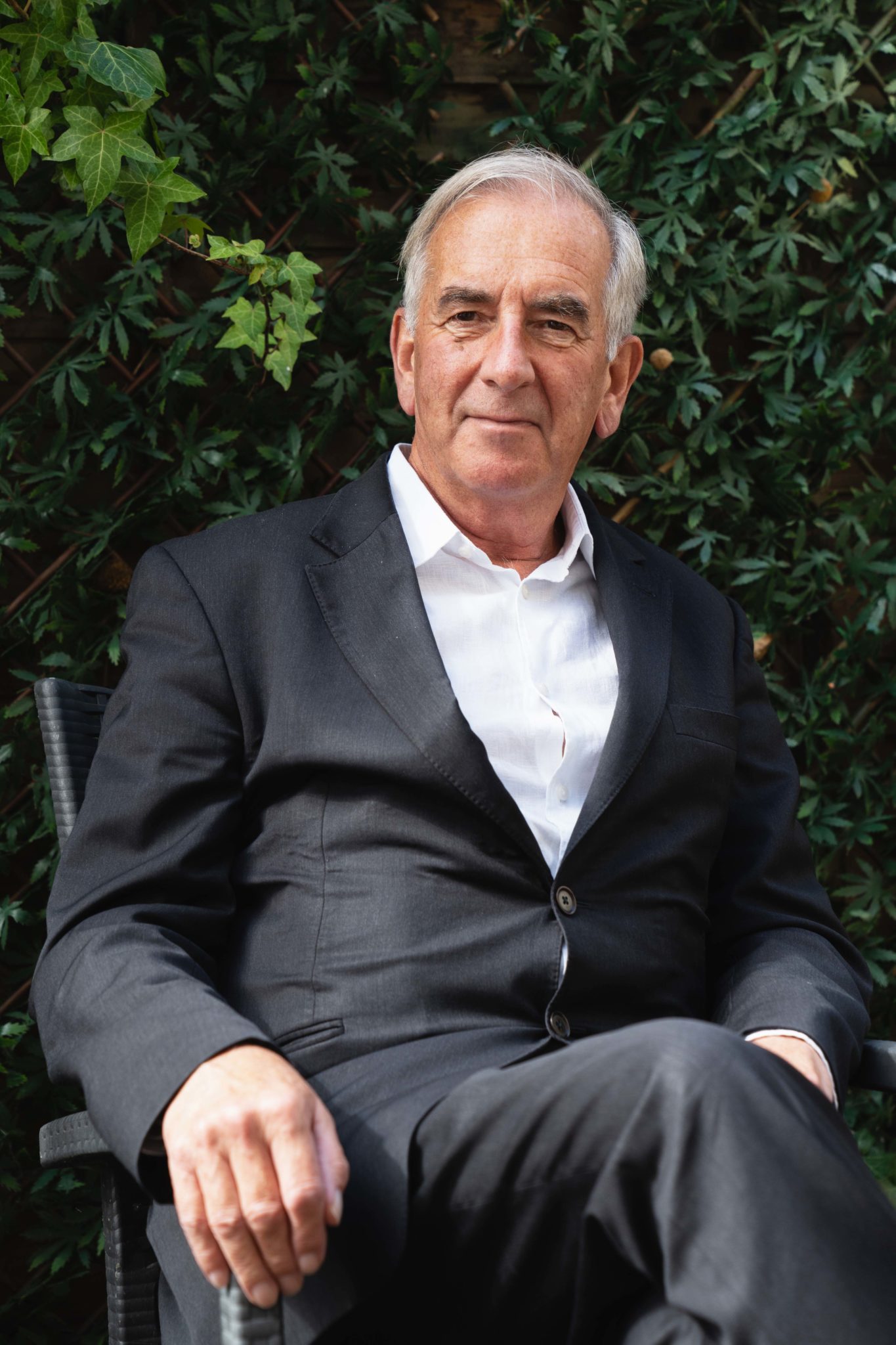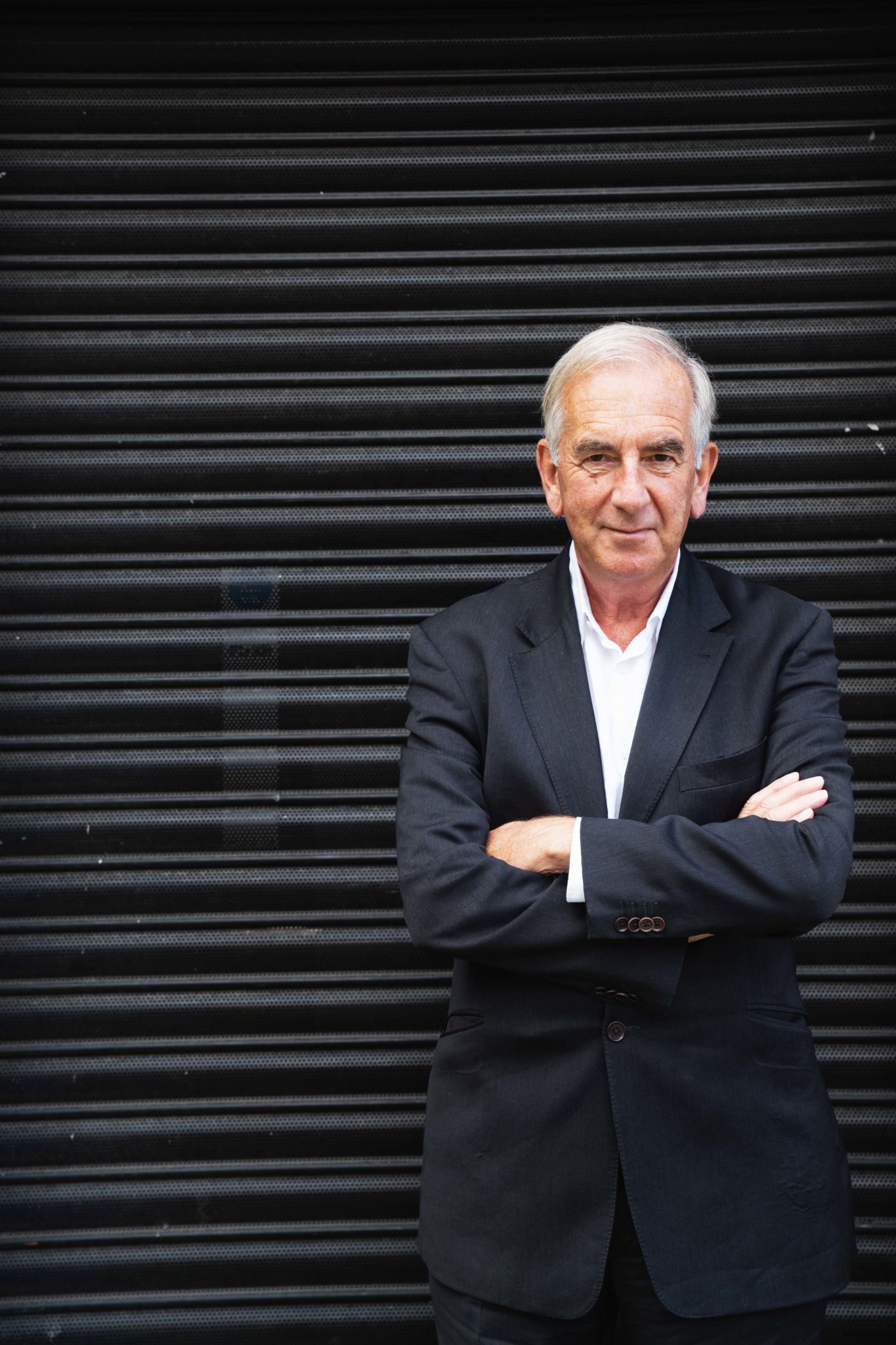- Culture
- 23 Oct 24

Bestselling author Robert Harris on his compelling new historical drama Precipice, Donald Trump, Dominic Cummings, and the big screen adaptation of his hit thriller Conclave.
Precipice, the latest novel from bestselling author Robert Harris, focuses on the relationship between HH Asquith – Liberal prime minister of Britain from 1908 to 1916 – and aristocratic socialite Venetia Stanley. Given that Asquith was already married, there was already enough built-in drama in the relationship, before even considering the substantial age gap (Asquith was 61 and Stanley 26).
Early in the story, a member of Stanley’s social set drowns during a pleasure cruise, the investigation of which soon widens to examine who might be leaking secret documents. It’s a great framework for a historical drama, with Harris drawing initial inspiration from Asquith’s voluminous correspondence.
“Every letter from him in the novel is genuine,” notes the softly spoken author during a visit to Hot Press HQ. “He wrote Venetia 560 letters, but he destroyed all her replies. Nonetheless, I read other letters she’d written to other people, and sometimes in his letters, he quoted something she’d said to him. So I was able to build up a picture of her character. I’ve been aware of the story for about 40 years.
“I read Roy Jenkins’ biography, which was published in 1964 and first revealed the existence of the letters. Then I read the selected edition of just over half of them, which was published in 1982 – the story’s been kicking around in the back of my head for many years. I thought of writing a novel about the Asquith family, but more and more, I was drawn to this particular story. It just seemed to me extraordinary.”
As Harris notes, the politician’s modern descendants include one very well known actress.
Advertisement
“Asquith’s daughter married his private secretary, who was called Bonham Carter,” he explains. “Helena Bonham Carter, who came to the launch party on Monday, is descended from Asquith’s daughter, so she is his great granddaughter. She had only just started reading the book, but she came to the party, which was good of her.”
In Precipice, Stanley comes across as a Madame Bovary-style bored socialite, though her keen intellect is eventually revealed as she starts moving in political circles.
“The origin of the book, in part, was because I actually wanted to finally write a novel with a strong female character,” reflects Harris. “It suddenly struck me that by creating her correspondence, I could give her agency. If you have one side of correspondence in a love affair, it’s going to look mad and obsessional. Especially if it’s from the man’s side and he’s older than the woman, it looks very weird. The moment you started to put in her responses, then the whole thing changed in tone I thought.”
Though Asquith was PM during the first years of World War 1, he is certainly not one of the more well known figures in British political history. So was he actually a great statesman, or a more mediocre figure?
“Certainly not mediocre,” says Harris. “He was arguably the cleverest and most intellectual man ever to hold the office of prime minister. In terms of sheer brain power, there were the scholarships he won to Oxford, the prizes he won there and his career in the law. He presided over an incredibly talented cabinet with people like Churchill, Lloyd George and Haldane.
 Robert Harris by Maya Solanki.
Robert Harris by Maya Solanki.TOO OBSESSIVE
Advertisement
“They were all completely content to serve under him. He was like a judge, really – calm, imperturbable, very efficient in his dispatch of business. His weaknesses were a tendency to procrastinate – his most famous phrase was “Wait and see” – and he liked to drink. He was known as “Squiffy”, but he was still very effective. The leader of the Tory party, Bonar Law, said to the Tory chief whip, ‘The trouble is, Asquith drunk is better than any of us sober.’
“So he was a dominant figure and presided over a really radical government. And it was he who introduced old age pensions when he was chancellor of the exchequer, so he’s a substantial figure.”
Ultimately, Stanley found Asquith to be too obsessive, and she observes his eventual mental decline with typical sharpness. Indeed, Asquith appeared too preoccupied with their affair to notice the flaws in Churchill’s ill-fated Gallipoli campaign.
“I think that was true,” nods Harris. “It’s hard to see that it wasn’t a distraction. We have a letter that he took half-an-hour to write, from when the actual Dardanelles operation was first being discussed. He sent a crucial memorandum from Lord Kitchener to Venetia Stanley, and then made a speech, which he seems to have based on misremembering what was in the letter. These are serious errors and I think he did start to become distracted.
“Above all, he looked like a man out of his time. He was a Victorian born in 1852, the last real Victorian prime minister. He didn’t understand the mass media in the way Churchill and Lloyd George did.”
The author further considers Venetia Stanley as an individual.
“She was formidable,” he says. “She was cool – everyone wanted to be her friend. She was quite careless in a way about what she did; she liked outraging respectable opinion to a degree. She would have found it very flattering and interesting to have the prime minister dancing around her, and she probably would have enjoyed the risk of it. The affair was going strong in July and August 1914, but by Christmas that year, she was looking for a way out. It was going too far for her.”
Of course, the outbreak of World War 1 in 1914 forced Asquith to put the Irish question on the back-burner.
Advertisement
“Like a lot of Englishmen, he couldn’t quite understand it,” says Robert. “Or if he did, he couldn’t see a way of solving it, because neither side would compromise. The Ulster men wouldn’t compromise – they insisted on continuing under the crown – and the nationalists insisted the north was part of the south. So they tried everything they could. Asquith really devoted hours, days, weeks to trying to figure out some compromise. The deadline had arrived, and then suddenly there’s a gunshot in Sarajevo, and the world completely changes.”
 Robert Harris by Maya Solanki.
Robert Harris by Maya Solanki.INCISIVE COMMENTATOR
Raised on a Nottingham council estate, Harris attended Cambridge and subsequently worked on BBC current affairs programmes like Panorama. Eventually, he was appointed political editor of The Observer and remains an incisive political commentator.
I mention a column I read a while back by The Financial Times’ Janan Ganesh, in which he argued that the fading folk memory of the Second World War is contributing to the worrying rise in far right politics.
“Yes, this is an ominous thing,” says Harris. “Much more than 1939, 1914 is the start of the modern era. Before that, there’s a settled order to the world, where everyone knows their place. Obviously, there was a lot of turbulence – industrial strife, votes for women and so on – but essentially, 1914 is a break with what had gone before. For the first time, new technology is applied to warfare, states mobilise every citizen and total war begins.
Advertisement
“Really, World War 2 is just round two of the first. It’s the same belligerents and more or less the same issues. 1914 is important to look back on, because now, we’ve also had a reasonably long period of peace. It’s as if there’s something in the human animal where, after two generations, we forget war, what’s it like and what it does.
“People are willing to tear up institutions, withdraw from the European Union, withdraw from NATO – the things that have protected us, they’re willing to take for granted.”
Though there is much justifiable dread about Donald Trump securing another term as US President later this year, for a long time, I’ve felt the gravest threat to US politics might come were a more cerebral, Putin-like figure to emerge on the alt-right. For the time being, the greatest threat to Trump’s authoritarian tendencies may be his own spectacular incompetence.
“I mean, I’ve always though that, in a way, to call Trump a fascist is slightly demeaning to the fascists,” says Harris. “Loathsome though they were, they did have a programme, they knew what they were doing. They were serious figures. Trump is a sort of showman, it’s all about him. There isn’t coherent thinking behind what he does, it’s whatever crosses his strange brain at any given moment.
“But I agree with you. American democracy is starting to look as though it’s got flaws, and it depends on a measure of consensus about what the state is for, and what everyone’s role as a citizen is. That seems to have gone, and they’ve got a third of a billion guns. It could be an alarming situation.”
Back in the UK, I wonder what Harris makes of Dominic Cummings, the ex-Tory adviser who, in some ways, kickstarted the current lamentable political era a decade ago, courtesy of his pro-Brexit machinations. His political impact is fascinating, even if the Tory regime he was part of was often as shambolic as the Trump administration.
“He’s probably a one off. He’s obviously highly intelligent, but he’s a bit cranky I think. He’s a little bit over excited about things, and I think he’s quite dangerous in his willingness to challenge parliamentary authority and circumvent elected representatives. But there’s something mildly comical about him. For all the effect he’s had, he’s like a mad boffin in the corner, who you sometimes just want to tiptoe by before he goes off on one.”
Advertisement
As it happens, I previously interviewed Robert in the immediate aftermath of Brexit back in 2016, when he was promoting his novel Conclave. A thriller focusing on the death of a pope and the papal enclave to select his successor, the big screen adaptation arrives later this year (other Harris novels like Enigma and Munich have also received film adaptations). Conclave boasts Ralph Fiennes in the lead role, and other major talent both in front of and behind the camera.
“It premiered over the weekend,” says Harris. “It’s an absolute Rolls Royce production, in terms of acting, writing and direction. I was staggered by the response when it was shown in America, from the trade press like Variety and The Hollywood Reporter. I saw a pretty much finished version a year ago, but I haven’t yet seen the final version. I was offered a screening, but I was on holiday, so I’m looking forward to seeing it.”
Certainly, from the release scheduling, it appears the film is being positioned for a major awards push.
“It has the juggernaut of Universal Pictures and Focus Features behind it,” acknowledges Robert. “They’ve decided it’s got that kind of possibility, and that’s obviously how they’re now going to strategise the launch of it.”










